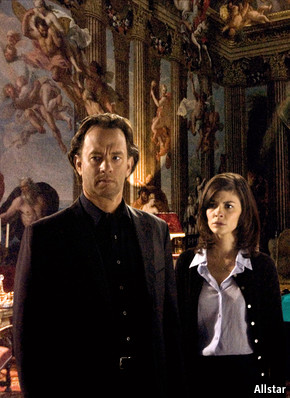Muck in the Tiber
The Economist
IT IS in the Vatican, but neither an institution of the city-state, nor part of the Roman Curia, the Catholic church’s central administration. It is only half a bank (it takes deposits, but does not give loans). Yet the blandly named Institute for the Works of Religion (IOR) has caused endless discomfort to recent popes. The problems go back to at least 1982 when the IOR was involved in the fraudulent bankruptcy of Banco Ambrosiano. In June of that year the Italian bank’s chairman, Roberto Calvi, was found hanged under Blackfriars Bridge in London. The latest scandal is less grisly, but equally bizarre. On July 1st the IOR’s director, Paolo Cipriani, and his deputy, Massimo Tulli, resigned three days after the Italian authorities arrested and jailed a Vatican cleric, Monsignor Nunzio Scarano. He is accused of bribery as part of a plot to smuggle ˆ20m ($26m) in cash into Italy from Switzerland on a private jet. He was claimed to have paid ˆ400,000 to an alleged fellow-conspirator, a non-commissioned officer in the Carabinieri (the Italian gendarmerie) working with the domestic spy agency. The intelligence officer and the other alleged member of the plot, a financial broker, were said to have met through a Catholic order of chivalry. Documents presented to a judge suggest Mr Tulli and Mr Cipriani helped clear transactions involved in the case. It is hard to imagine a story more likely to reinforce the sinister, esoteric image of the Vatican propagated by authors such as Dan Brown in “The Da Vinci Code”. According to Italian prosecutors, the intelligence officer got to Switzerland, but returned empty-handed when the broker failed to deliver the cash, allegedly entrusted to him by a Neapolitan shipping family (which denies any suggestion of tax-dodging). Monsignor Scarano, a banker who came unusually late in life to holy orders, was already a suspect in a separate money-laundering investigation involving rich friends from his home town of Salerno. He has denied wrongdoing in that case, but his lawyer said he did not dispute the facts of the bribery investigation. He would, however, contest the prosecutors’ accusations on a point of law. The monsignor had been merely trying “to help out his friends”, he said. Mr Cipriani and Mr Tulli were already under investigation, together with the IOR’s former president, Ettore Gotti Tedeschi, in another case that involves a suspected violation of Italy’s anti-money-laundering regulations. Police seized ˆ23m from a Vatican account at a Rome bank, but the money was later released. According to reports in the Italian media, the case against Mr Gotti Tedeschi, who was later dismissed, will be dropped. The IOR’s board accused him of negligence. Mr Gotti Tedeschi said he had been removed because he wanted greater transparency. All this points to one of several problems with the IOR. It was set up to provide asset management, mainly for men and women of the cloth and the institutions to which they belong. Large numbers of lay people are also entitled to accounts. Among them are Vatican employees and diplomats accredited to the Holy See: the Council of Europe’s Moneyval unit, which is evaluating the Vatican’s anti-money-laundering measures, found almost a third of accounts were held by lay people or organisations. The bank operates in a tax haven, and the advantages it offers have not been lost on some of its clients’ friends. The barrier separating the IOR from Italian society, in which the exchange of favours is ubiquitous and unremarkable, has been permeable. Last month the IOR’s new president, a German banker, Ernst von Freyberg, said it had this year reported seven suspicious transactions to the Vatican’s financial watchdog. Appointed in the last days of Pope Benedict’s papacy, he will stand in for Mr Cipriani until a replacement can be found. The deputy’s post will be occupied temporarily by one of several executives of an American-based consultancy, Promontory Financial Group, which has been at work at the IOR since May, checking accounts and clients. It will be a long haul. Mr von Freyberg said accounts were being sifted at the rate of 1,000 a month; Moneyval said in November 2011 that there were more than 33,000. And clearly the scrutiny had not reached S for Scarano. Instead—awkwardly for the Vatican—it was Italian investigators who blew the whistle, as they have done in every previous scandal. Pope Francis is nevertheless showing more vigour than any predecessor in his efforts to clean up the IOR. On June 15th he appointed a trusted ally, Monsignor Battista Ricca, to be the institution’s so-called prelate—an overseer who can attend the IOR’s board meetings and see its paperwork. The pope has since named a special commission to scrutinise the bank, with powers to overrule its secrecy rules. Seldom can a financial institution have been subjected to greater oversight from more quarters. But Francis appears to have realised that reform of IOR is a crucial test of his determination to shake up the Curia, substantially unreformed since the 1970s. That will take longer and could be even harder: the IOR is typical of a culture of secrecy and compartmentalisation that extends throughout the Vatican.
|
.
Any original material on these pages is copyright © BishopAccountability.org 2004. Reproduce freely with attribution.
